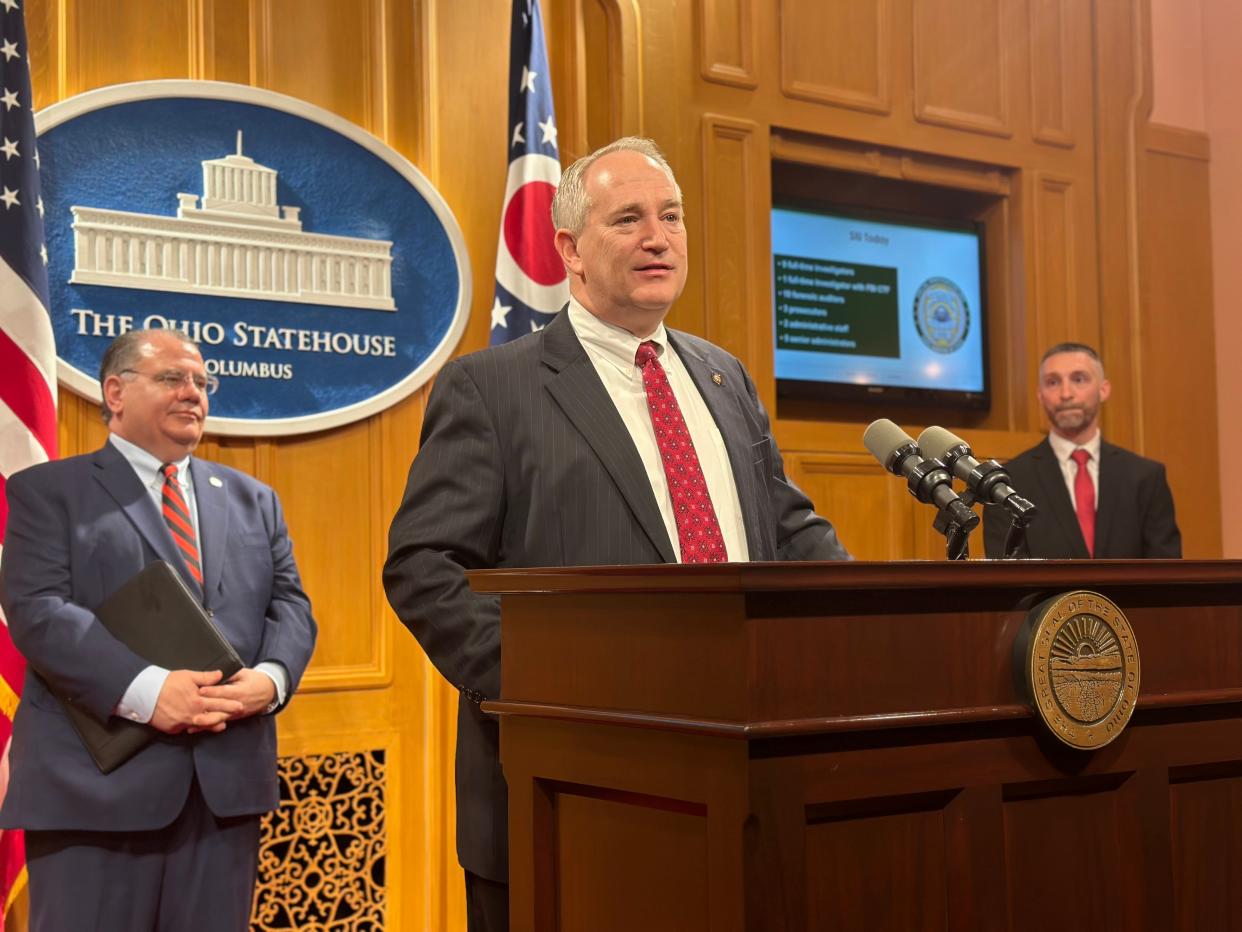Ohio Auditor wants more money, stiffer penalties to fight public corruption

- Oops!Something went wrong.Please try again later.
- Oops!Something went wrong.Please try again later.
Ohio has prosecuted 100 public officials for fraud and corruption in the last four years.
A mayor from Bridgeport was caught depositing traffic fines into his personal account. A Clark County employee created a fake vendor and paid himself $1.8 million over 16 years. A former deputy auditor from Nelsonville created fake employees in order to collect additional paychecks.
"In most cases of public officials who lie, cheat and steal from public coffers, there are ample warning signs that should have been reported ...," Ohio Auditor Keith Faber told reporters Thursday. "We want people to be able to spot red flags of potential corruption and fraud and know how to report their suspicions."
Faber thinks elected officials who don't report these crimes because they're worried about a scandal or an election should be punished.
"We do think there needs to be penalties for someone who knowingly violates their duty," Faber said. Dereliction of duty is a charge in Ohio, but the law could be more explicit.
That's why Faber has partnered with state Sen. Tim Schaffer, R-Lancaster, to introduce legislation to expand the auditor's Special Investigations Unit and mandate prompt reporting when fraud is evident.
The bill, which is still a few weeks away from being introduced, will include additional training requirements for public employees on how to spot potential fraud and additional dollars from the state to hire more staff for the unit that investigates these crimes.
"This legislation that we are drafting right now is going to be a major step forward in catching criminals," Schaffer said.
And Schaffer is open to having those prompt reporting requirements apply to state lawmakers too, even though they're overseen by the Joint Legislative Ethics Committee and not the auditor's office.
For example, representatives who had concerns about how former House Speaker Larry Householder passed legislation could have reported their concerns to the auditor's office. But it would have been JLEC's or potentially the FBI's responsibility to investigate.
Householder is currently on trial on a federal racketeering charge that alleges he accepted more than $60 million in bribes from a utility company to bail out their nuclear power plants.
More:Householder trial: Emails, texts, recordings, checks pull back the curtain on politics
"Our belief is that the training should apply to all government officials," Faber said.
Faber also wants more training for local governments on why they should call his office as soon as they suspect cyber fraud. Faber cited a Northeast Ohio township as the "perfect example. Local officials alerted his office within an hour of discovering a $1 million attack, and his team "clawed back" a large portion of the money.
"If he had waited just a week or two to contact us," Faber said. "Most of that money would have been lost."
Anna Staver is a reporter for the USA TODAY Network Ohio Bureau, which serves the Columbus Dispatch, Cincinnati Enquirer, Akron Beacon Journal and 18 other affiliated news organizations across Ohio.
Get more political analysis by listening to the Ohio Politics Explained podcast
This article originally appeared on The Columbus Dispatch: Ohio Auditor wants stiffer penalties to fight public corruption, fraud

